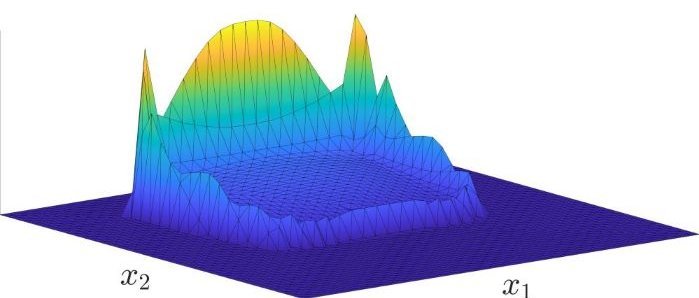Jonas Marko Mixed-integer optimal control problems with total variation regularisation
In many applications, continuous processes are influenced by discrete decisions, such as flipping a switch, engaging a gear or switching between the temperature levels of a heater. However, classical results of optimal control theory such as Pontryagin’s maximum principle are no longer applicable to such discrete (i.e. integer) controls. Moreover, even basic properties of these problems such as the existence of a solution are no longer evident; often a solution only exists in the limit of infinite switches. To avoid this, we regularize the problem using the total variation functional (TV-functional), which penalizes switching, i.e. changing the value of the integer control, in the objective function.
We investigate the properties and solution methods of such mixed-integer optimal control problems with TV regularization. Dynamic programming can be used to construct efficient solvers that can find local minimizers via a trust-region method. The video on the right shows an example of two such solutions in which a room is heated from 10°C to 20°C by two heaters on the left and right edges. The heaters have heating levels between 0 and 5, which are calculated. Heat flows constantly over the edge of the area into the surroundings with an ambient temperature of 0°C. The solutions differ in the parameter that determines the TV regularization - a smaller parameter leads to more switches and suggests how solutions without TV regularization look like.
Nicolas Borchard
As part of my doctoral studies, I am working on optimal control on measures with a Wasserstein regularisation.
This means that I am trying to minimise an objective functional f(u)+W(u) that contains both a sufficiently nice function f and a so-called Wasserstein term W. This allows you to minimise f and at the same time check how close the control u is to a desired specified control.
The functional f is a sufficiently nice function and does not have to be convex.
What is interesting here is the case of a so-called tracking term, which still contains a differential equation that needs to be solved.

In particular, optimality conditions, numerical algorithms for the solution and the theoretical constructs behind the question of the doctoral studies are investigated.
Further information can be found under Publications at https://www.b-tu.de/fg-optimale-steuerung/team/nicolas-borchard.
